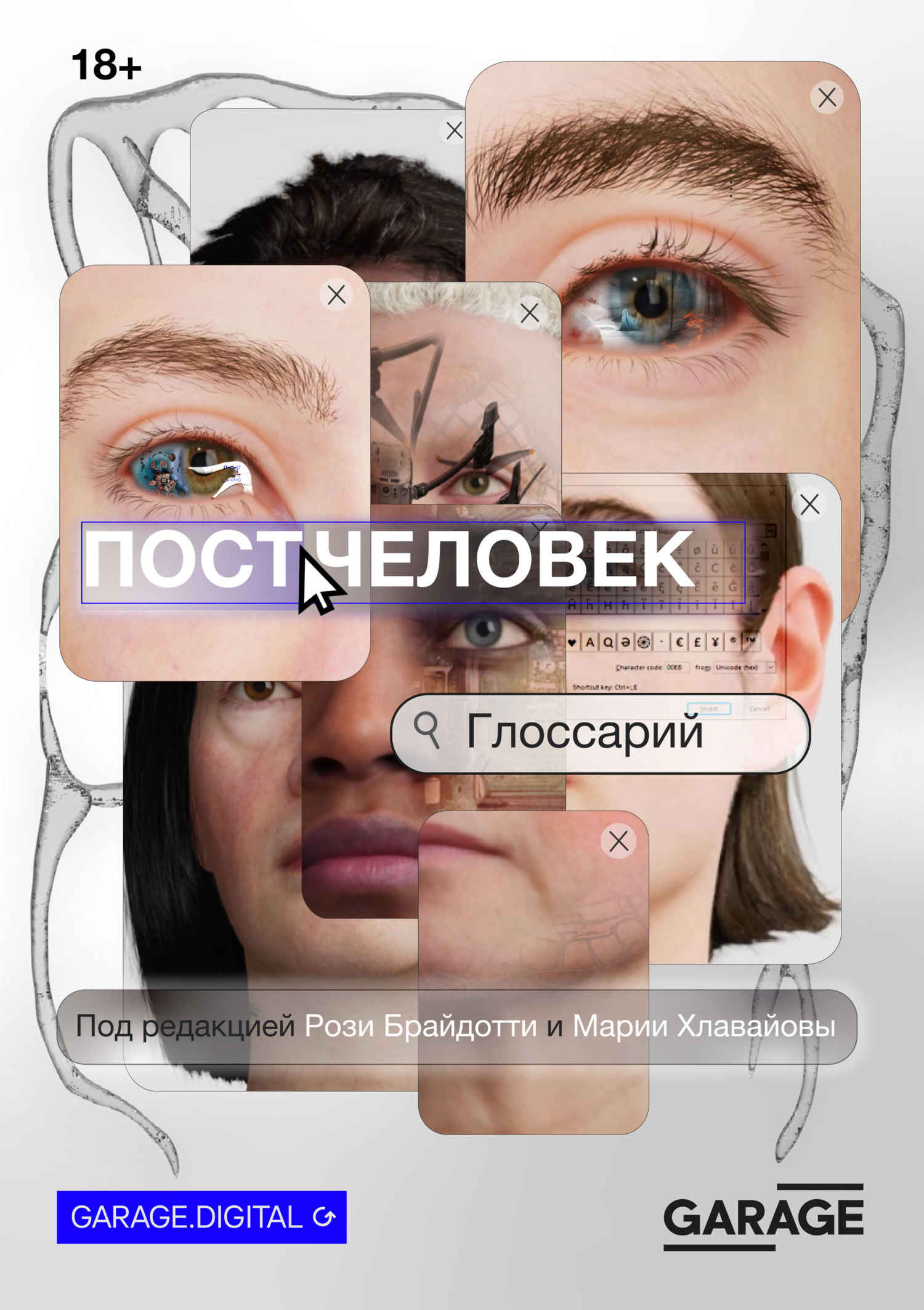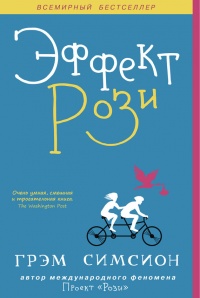Читать книгу - "Постчеловек: глоссарий - Рози Брайдотти"
Аннотация к книге "Постчеловек: глоссарий - Рози Брайдотти", которую можно читать онлайн бесплатно без регистрации
В свете новых вызовов, охватывающих современное общество, концепт человека как таковой, а также проблема его взаимодействия с искусством, точными и гуманитарными науками претерпели существенные изменения. Данный процесс, называемый «постчеловеческим состоянием», подвержен влиянию неолиберальной экономики, глобального капитализма, миграционной политики, технологического прогресса, экологических проблем, борьбы с терроризмом и т. д. «Постчеловек: глоссарий» представляет собой сборник ключевых терминов постчеловечества в контексте современного искусства и интеллектуальной сферы. Он охватывает такие широкие темы, как антропоцен, капиталоцен, экология, цифровой активизм, алгоритмическая культура и нечеловеческое. В глоссарии представлены краткие определения этих понятий и исследуются художественные, интеллектуальные и активистские подходы к решению сложных проблем «постчеловеческого состояния». Сборник помогает разобраться в изменениях, которые произошли в искусстве в контексте современных событий, связывает различные дисциплины, аудитории и критические сообщества. Рози Брайдотти (род. 1954) – философ и теоретик феминизма, ее теоретические работы повлияли на становление постгуманизма. Мария Хлавайова (род. 1971) – куратор и теоретик, основательница и художественный директор пространства BAK (Утрехт).
Oosterling, H. (2001), ‘ICTology and Local Inter-esse: Desacralizing Derrida’s Chora’, in L. Nagl (ed.), Essays on Jacques Derrida and Gianni Vattimo, ‘Religion’, 109–31, Frankfurt am Main: Peter Lang.
Oosterling, H. (2003), ‘Sens(a)ble Intermediality and Interesse: Towards an Ontology of the In Between’, Intermedialites, 1: 29–46.
Oosterling, H. (2005), ‘From Interests to Inter-esse: Nancy on Deglobalization and Sovereignty’, SubStance, 104: 81–103.
Oosterling, H. (2007), ‘Interest and Excess of Modern Man’s Radical Mediocrity: Rescaling Sloterdijk’s Grandiose Aesthetic Strategy’, Cultural Politics, 3(3): 357–80.
Oosterling, H. (2010), ‘Dasein is Design. Or: Must Design Save the World?’ in From Mad Dutch Disease to Born to Adorn: The Premsela Lectures 2004–2010, 115–40, Amsterdam: Premsela Foundation.
Oosterling, H. (2013), ‘Ecoliteracy in between Politics, Philosophy and Art: The Shared Interests of Rotterdam Skillcity’, in I. Gevers (ed.), Yes, Naturally: How Art Saves the World, 100–7, Rotterdam: nai010 publishers.
Oosterling, H. (2015), ‘Mesopolitical Interests: Rotterdam Skillcity as Rhizomatic, Ecosophical, Reflactive Event’, in R. Braidotti and R. Dolphijn (eds), This Deleuzean Century: Art, Activism, Life, 269–98, Leiden and Boston: Brill Rodopi.
Oosterling, H. and Płonowska Ziarek, E. (eds) (2011), Intermedialities: Philosophy, Arts, Politics, Lanham: Lexington Books.
Oppermann, S. (2015), ‘Quantum Physics and Literature: How They Meet the Universe Halfway’, Anglia, 133(1): 87–104.
Oppermann, S. (2016), ‘From Posthumanism to Posthuman Ecocriticism’, Relations, 4(1): 23–37.
Ortner, S. B. and H. Whitehead (eds) (1981), Sexual Meanings: The Cultural Construction of Gender and Sexuality, Cambridge: Cambridge University Press.
Osborne, P. (2013), Anywhere or Not at All: Philosophy of Contemporary Art, London and New York: Verso.
Oudshoorn, N. (1994), Beyond the Natural Body: An Archaeology of Sex Hormones, London and New York: Routledge.
Oxford English Dictionary (1989), Oxford: Oxford University Press.
Oyama, S. ([1985] 2000), The Ontogeny of Information: Developmental Systems and Evolution, 2nd ed., Durham, NC: Duke University Press.
Ozeki, R. (2004), All Over Creation, New York: Penguin Books.
Paasonen, S., K. Hillis and M. Petit (2015), ‘Introduction: Networks of Transmission: Intensity, Sensation, Value’, in K. Hillis, S. Paasonen and M. Petit (eds), Networked Affect, 1–24, Cambridge, MA: MIT Press.
Packard, V. (1960), The Waste Makers, New York: David McKay.
Palsson, G., B. Szerszynski, S. Sorlin, J. Marks, B. Avril, С. Crumley, H. Hackmann, P. Holm, J. Ingram, A. Kirman, M. Pardo Buendia and R. Weehuizen (2013), ‘Reconceptualizing the “Anthropos” in the Anthropocene: Integrating the Social Sciences and Humanities in Global Environmental Change Research’, Environmental Science and Policy, 28: 3–13.
Panourgia, N. (2009), Dangerous Citizens. The Greek Left and the Terror of the State, New York: Fordham University Press.
Panourgia, N. (2017), ‘Immanent Human(ism)s: Engagements with James A. Boon’, Anthropology and Humanism, Special Issue dedicated to James A. Boon, guest eds A. Dent and I. Whitmarsh, Summer 2017.
Panourgia, N. and G. Marcus (eds) (2008), Ethnographica Moralia: Experiments in Interpretive Anthropology, New York: Fordham University Press.
Papadopoulos, D. (2010), ‘Insurgent Posthumanism’, Ephemera: Theory and Politics in Organization, 10(2): 134–51.
Papadopoulos, D. (2012), ‘Worlding Justice/ Commoning Matter.’ Occasion: Interdisciplinary Studies in the Humanities, 3(1).
Papadopoulos, D. (2017), Experimental Politics: Technoscience and More Than Social Movements, Durham, NC: Duke University Press.
Papadopoulos, D., N. Stephenson and V. Tsianos (2008), Escape Routes: Control and Subversion in the 21st Century, London: Pluto Press.
Papastergiadis, N. (2006), ‘The Invasion Complex: The Abject Other and Spaces of Violence’, Geografiska Annaler, Series B: Human Geography, 88(4): 429–42.
Papenburg, B. and M. Zarzycka (eds) (2013), Carnal Aesthetics: Transgressive Imaginary and Feminist Politics, London and New York: I.B.Tauris.
Parikka, J. (2010), Insect Media: A Media Archaeology of Animals and Technology, Minneapolis: University of Minnesota Press.
Parikka, J. (2014), The Anthrobscene, Minneapolis: University of Minnesota Press.
Parikka, J. (2015), A Geology of Media, Minneapolis: University of Minnesota Press.
Parisi, L. (2009), ‘Technoecologies of Sensation’, in B. Herzogenrath (ed), Deleuze/Guattari and Ecology, 182–99, Basingstoke: Palgrave Macmillan.
Parisi, L. (2013a), Contagious Architecture: Computation, Aesthetics, and Space, Cambridge, MA: MIT Press.
Parisi, L. (2013b), ‘For a New Computational Aesthetics: Algorithmic Environments as Actual Objects’ [lecture], BMK, 12 August 2013, https://vimeo.com/72181685 [accessed 7 February 2017].
Parisi, L. (2015), ‘Instrumental Reason, Algorithmic Capitalism and the Incomputable’, in M. Pasquinelli (ed.), Alleys of Your Mind: Augmented Intelligence, 125–38, Luneburg: Meson Press.
Parisi, L. and M. B. Fazi (2014), ‘Do Algorithms Have Fun? On Completion, Indeterminacy and Autonomy in Computation’, in O. Goriunova (ed.), Fun and Software: Exploring Pleasure, Paradox and Pain in Computing, London: Bloomsbury 109–27.
Parnes, O. (2007), ‘Die Topographie Der Vererbung: Epigenetische Landschaften Bei Waddington Und Piper’, Trajekte, 14(7): 26–32.
Parrenas, R. S. (2003), ‘At the Cost of Women: The Family and Modernization-Building Project of the Philippines in Globalization’, Interventions: Journal of Postcolonial Studies, 5(1): 29–44.
Pasquale, F. (2015), The Black Box Society, Cambridge, MA: Harvard University Press.
Pasquinelli, M. (2008), Animal Spirits: A Bestiary of the Commons, Rotterdam: NAi Publishers.
Pasquinelli, M. (ed) (2015a), Alleys of Your Mind. Augmented Intelligence, Luneburg: Meson Press.
Pasquinelli, M. (2015b), ‘Italian Operaismo and the Information Machine’, Theory, Culture & Society, 32(3): 49–68.
Patterson, С. (2002), Eternal Treblinka: Our Treatment of Animals and the Holocaust, Herndon: Lantern Books.
Patterson, O. (1982), Slavery and Social Death: A Comparative Study, Cambridge, MA: Harvard University Press.
Patton, P. (2012), ‘Immanence, Transcendence, and the Creation of Rights’, in L. de Sutter and K. McGee (eds), Deleuze and Law, 15–31, Edinburgh: Edinburgh University Press.
Peckhaus, V. (2006), ‘Die Aktualitat der Logik als Organon’, in G. Abel (ed.), Kreativitat: XX. Deutscher Kongress fur Philosophie, 26–30 September 2005 an der Technischen Universitat Berlin: Kolloquienbeitrage, Hamburg: Felix Meiner Verlag.
Pepi, M. (2011), ‘Iconology in the Age of the Algorithm’, Artwrit, http://www.artwrit.com/article/iconology-in-the-age-of-thealgorithm/ [accessed 16 November 2015].
Pepperell, R. (1997), The Posthuman Condition, Exeter: Intellect.
Pepperell, R. (2003), ‘The Posthuman Manifesto’, Intellect Quarterly, Winter 2003, http://www.intellectbooks.co.uk/File: download,id=411/Peperell.pdf [accessed 26 May 2016].
Peters, J. D. (2015), Marvelous Clouds: Toward a Philosophy of Elemental Media, Chicago: Chicago University Press.
Peters, M. A. (2012), ‘Algorithmic Capitalism and Educational Futures: Informationalism and the Googlization of Knowledge’, truth-out.org, 4 May, http://www.truth-out.org/news/item/8887-algorithmic-capitalism-and-educational-futures-informationalism-and-the-googlization-of-knowledge [accessed 5 May 2016].
Phillips, D. K. and M.
Прочитали книгу? Предлагаем вам поделится своим впечатлением! Ваш отзыв будет полезен читателям, которые еще только собираются познакомиться с произведением.
Оставить комментарий
-
 Илья12 январь 15:30
Книга прекрасная особенно потому что Ее дали в полном виде а не в отрывке
Горький пепел - Ирина Котова
Илья12 январь 15:30
Книга прекрасная особенно потому что Ее дали в полном виде а не в отрывке
Горький пепел - Ирина Котова
-
 Гость Алексей04 январь 19:45
По фрагменту нечего комментировать.
Бригадный генерал. Плацдарм для одиночки - Макс Глебов
Гость Алексей04 январь 19:45
По фрагменту нечего комментировать.
Бригадный генерал. Плацдарм для одиночки - Макс Глебов
-
 Гость галина01 январь 18:22
Очень интересная книга. Читаю с удовольствием, не отрываясь. Спасибо! А где продолжение? Интересно же знать, а что дальше?
Чужой мир 3. Игры с хищниками - Альбер Торш
Гость галина01 январь 18:22
Очень интересная книга. Читаю с удовольствием, не отрываясь. Спасибо! А где продолжение? Интересно же знать, а что дальше?
Чужой мир 3. Игры с хищниками - Альбер Торш
-
 Олена кам22 декабрь 06:54
Слушаю по порядку эту серию книг про Дашу Васильеву. Мне очень нравится. Но вот уже третий день захожу, нажимаю на треугольник и ничего не происходит. Не включается
Донцова Дарья - Дантисты тоже плачут
Олена кам22 декабрь 06:54
Слушаю по порядку эту серию книг про Дашу Васильеву. Мне очень нравится. Но вот уже третий день захожу, нажимаю на треугольник и ничего не происходит. Не включается
Донцова Дарья - Дантисты тоже плачут





